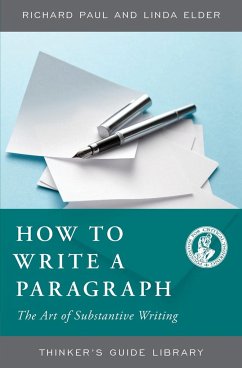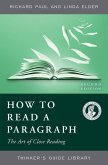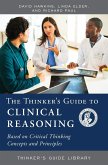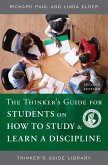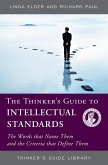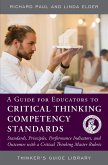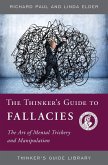Though close reading and substantive writing are essential skills for the educated person, they are frequently ignored in education. How to Write a Paragraph applies critical thinking tools to the process of writing to guide students towards developing clear, effective, and meaningful written communication. As a companion to How to Read a Paragraph, this volume in the Thinker's Guide Library includes activities to sharpen writing skills and overall reasoning abilities. Readers who work through this guide learn to be clearer, more purposeful, more aware of the assumptions guiding their thoughts, and more substantive in their approach to writing. As part of the Thinker's Guide Library, this book advances the mission of the Foundation for Critical Thinking to promote fairminded critical societies through cultivating essential intellectual abilities and virtues across every field of study across world.
Bitte wählen Sie Ihr Anliegen aus.
Rechnungen
Retourenschein anfordern
Bestellstatus
Storno

